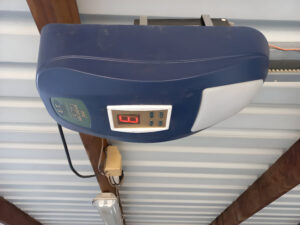
Electrical Safety 101: 10 Tips for a Secure and Efficient System

A well-maintained electrical system is vital for the safety and functionality of your home or business. Electrical hazards can pose serious risks, but with the right precautions, you can create a secure environment. In this blog post, we’ll share ten essential electrical safety tips to help you maintain a safe and efficient electrical system. By implementing these guidelines, you can protect yourself, your loved ones, and your property from potential accidents and hazards.
- Schedule Regular Electrical Inspections: Invest in annual electrical inspections conducted by a qualified electrician to identify any potential hazards or faulty wiring. Early detection of issues can prevent accidents and ensure your electrical system meets safety standards.
- Avoid Overloading Circuits: Distribute electrical loads evenly across circuits and refrain from plugging too many appliances into a single outlet or power strip. Overloading circuits can lead to electrical fires and damage your electrical system.
- Upgrade Outdated Wiring and Components: If your property has old or outdated electrical wiring and components, consider upgrading to modern, safer systems. Newer wiring not only enhances safety but also improves energy efficiency.
- Use Tamper-Resistant Outlets: Install tamper-resistant outlets to protect young children from inserting objects into sockets. Childproofing electrical outlets minimizes the risk of accidental electric shock.
- Keep Electrical Cords Tidy: Organize and secure electrical cords to prevent tripping hazards and accidental disconnections. Avoid running cords under rugs or furniture, as this can lead to wear and potential fire hazards.
- Practice Caution with Extension Cords: Use extension cords sparingly and avoid using them as a permanent solution. Never overload extension cords or daisy-chain multiple cords together.
- Unplug Unused Appliances: When appliances are not in use, unplug them to reduce the risk of electrical malfunctions and potential fire hazards. This also saves energy and reduces utility costs.
- Install Ground Fault Circuit Interrupters (GFCIs): Install GFCIs in areas where water is present, such as kitchens, bathrooms, and outdoor outlets. GFCIs help prevent electrical shocks by quickly shutting off the power if a ground fault occurs.
- Avoid DIY Electrical Work: Electrical work should be left to licensed professionals. Attempting DIY electrical repairs or installations without proper training can lead to serious injuries and safety hazards.
- Educate Your Family on Electrical Safety: Teach your family about electrical safety practices, especially young children. Everyone should be aware of the risks and know how to respond in case of an electrical emergency.
By following these ten essential electrical safety tips, you can ensure a secure and efficient electrical system for your property. Regular inspections, proper load management, and adherence to safety precautions are crucial in preventing electrical hazards. If you ever require electrical services or have safety concerns, don’t hesitate to contact our expert team at Artisans on Call. We are dedicated to providing top-notch electrical solutions to ensure the safety and well-being of your home or business.
